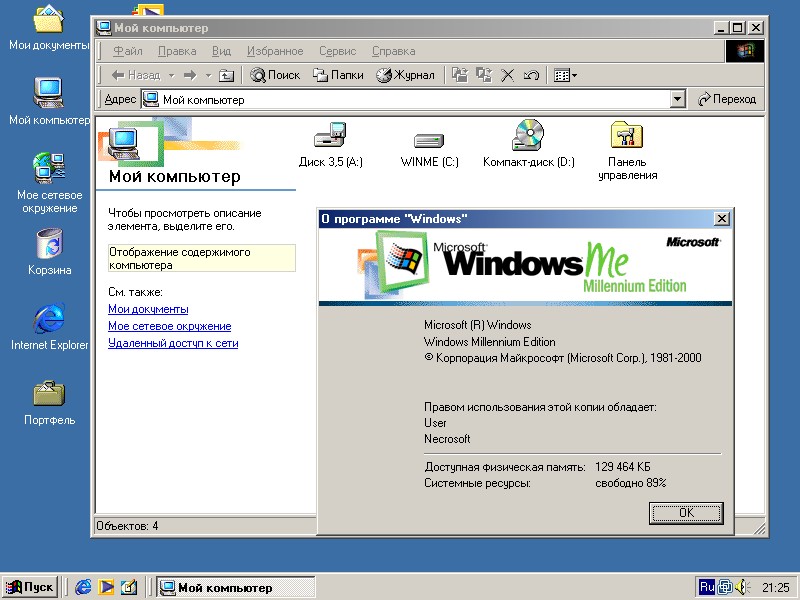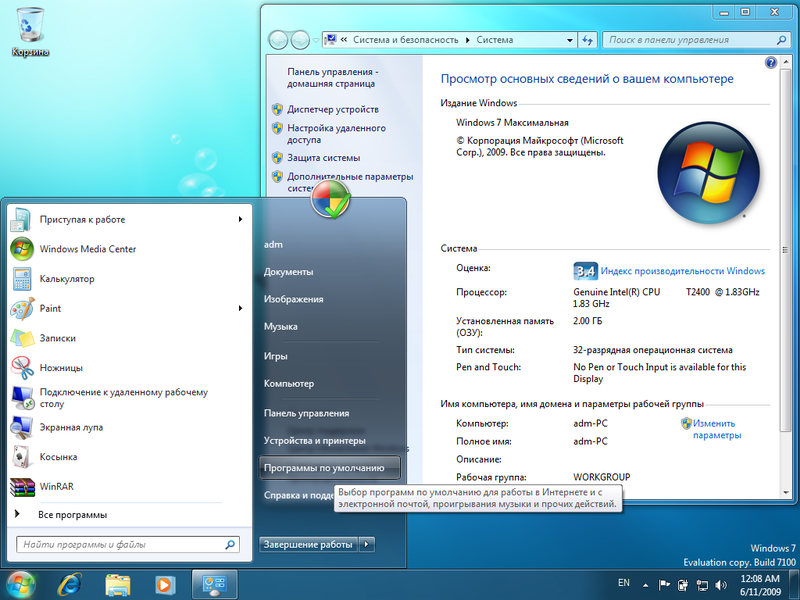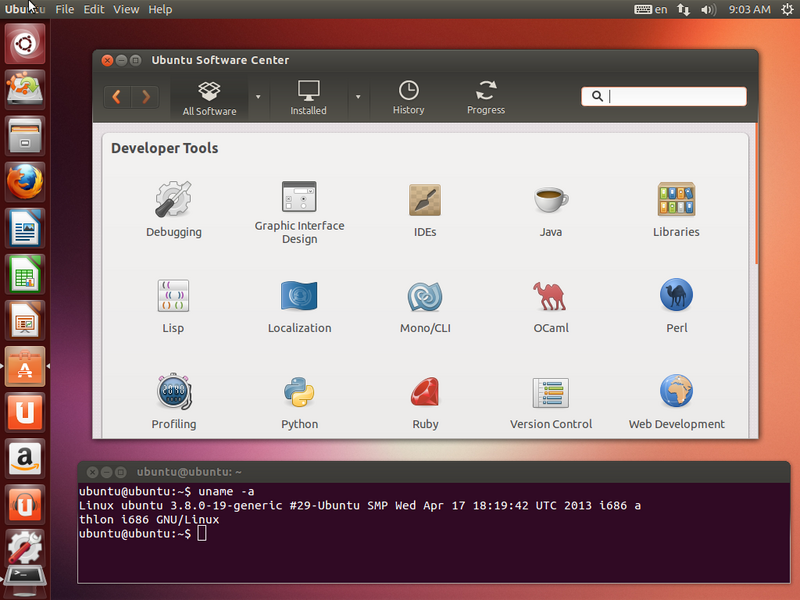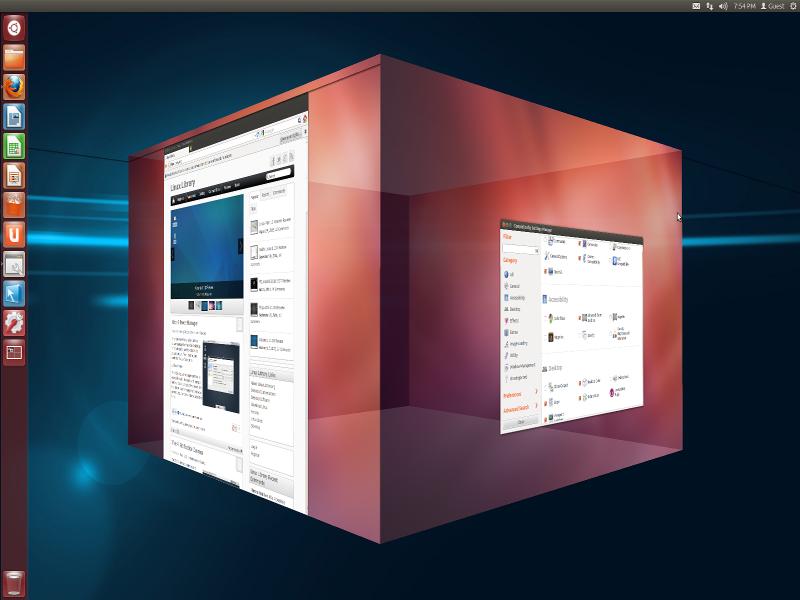My nail in the coffin of Windows
Hello dear members of the club of anonymous windogolics. My name is Yang and I have been Windependent since 2000. Today I will tell you how I got into this trap and how to get out of it.
In 2000, I was presented with a brand new computer with Windows Millenium installed.

As a good uncle, the dealer treats the future drug addict a few times with dope so that he is addicted, my friend set everything up and explained how to use it. I am not one of those who is studying the instruction manual before using any device. Everything that was not intuitive was found out by typing. Therefore, my system rarely lasted more than 2 weeks without reinstalling. Few people thought about the beauty of the interface and usability in those days. And among them, definitely, there was no Uncle Bill. And we used what was.
Then there was XP:

How she seemed modern and stable! Worked without reinstallation sometimes up to a year or more. The truth and the gasket between the computer and the chair have become a little more conscious. And what an interface! I had a revolution in my head and I realized that the OS can also be beautiful.
But what essentially did Microsoft do? They took all the same old core and simply hung a beautiful skin on it. And now on my 256 mb of RAM, piggy was in no hurry. It was then, somewhere deep inside my mind, the thought began to arise: “ Why isn’t Microsoft developing its main brainchild? Really, back in 95, they were clairvoyants and immediately created the ideal OS? "This is hard to believe. Moreover, everything in our world is booming. And what was relevant 19 years ago can hardly pretend to this today.
The next stage of my involution is Windows 7.

Well, what’s not the next topic for the old kernel? Only this time it was installed on my new laptop with 2 gb of RAM. And, as you might have guessed, I was in no hurry. Why do I need this obsolete G in a beautiful new wrapper and, besides, with such a appetite devouring the resources of my computer?
This was the turning point - I decided that railway I won’t start windows 8. And, as it turned out, not in vain, because now it’s hard to find a person who is not eager to throw a tomato at the creators of this miracle.
Why it happens? I believe that due to the lack of competition. Mac OS is not a direct competitor to Windows, because the former has a fundamentally different distribution method - pre-installation on all its computers and binding to the Macintosh architecture. On other Windows computers out of competition. And in an environment without competition, any product quickly acquires a smell.
The same thing, in my opinion, is now happening with Google. Why go far - let's take 2 posts from Habr for the last week: about Yandex and about Google . The first is developing with all its might, otherwise Google will swallow it and not notice it. For the second, Yandex is not a competitor. Why should he do extra gestures and improve. Instead, it’s better to tighten your grip and squeeze out more juice from the market.
Approximately the same picture is in the market of OS with Windows. Mac OS is not a competitor, Linux is not a threat.
And what are the alternatives for us - end users? As I said, there are only two of them: Mac OS and Linux. The first one can be called an alternative with a stretch, because you just can’t move to it with Windows - you need to buy a new Apple computer. Which, incidentally, is not cheap. I don’t consider assemblies like hackintosh because their average PC user will not be able to install them. The second, Linux, is a promising OS whose adherents believe in the inevitable death of Windows and world peace. Everyone believes and believes, since the 90s. And the red bar on the graph with OS usage statistics shows just enviable stability. But“Stability is not always a sign of well-being, sometimes it is a sign of constipation.” Stas Yankovsky.
Since I decided to abandon Windows, I had to determine with the new OS. From Linux-based OSes, I considered 2 options: Linux Mint and Ubuntu. The first is clearly designed for those who are used to Windows and do not want to feel great discomfort during the transition. I, on the contrary, wanted to arrange a stress test for myself and dive headlong into a new unknown world. That's why I opted for Ununtu.

Before burning bridges, I made a list of programs that I can’t do without. Googled (oh my God, I’m also a googolic, I need to urgently switch to Yandex :)) to make sure that all this can be installed on Linux. In the course of this mini-study, I was pleasantly surprised by the vast community. Both English and Russian. This gave me even more enthusiasm, because I realized that I wouldn’t stay alone in trouble. In addition, I learned that it is not necessary to demolish Windows; you can install Linux in parallel without risking anything.
So I decided to do so, leaving Windows to reserve. I read several manuals, but still had to tinker with the installation. The setup took even more time. At first, I had a breakdown and restructuring of a Windows-blind consciousness. But in general, I am very pleased and even now notice that I'm used to Ubuntu - I am not comfortable using my laptop, where Windows still stands, to use.
The first thing that surprised me was that my 3G modem started working right away without installing drivers, and it took 30 seconds to set up an Internet connection. It was very nice, considering that I had constant problems with this device on Windows. All devices on the computer worked without my participation, flash drives also work without drivers. In a word, support for devices out of the box in Ubuntu compared to Windows is wider.
The first thing that catches your eye when you get acquainted with the Ubuntu interface is the application bar moved to the left. Nowadays, the main program on the computer is the browser. When using a widescreen monitor, the browser almost always has a vertical scroll bar and very rarely a horizontal one. It turns out that the user lacks precisely the vertical space, part of which is occupied by the same application panel. The width is just the opposite - most sites have empty areas around the edges. This place could be used to good use. This is especially true for laptops and other devices with a resolution similar to 1366x768, where sometimes the vertical space is not enough simply catastrophically. Moving the “dashboard" to the left, we kill two birds with one stone - we free up vertical space and occupy part of the unused horizontal. This is obvious, but my brain atrophied by Windows didn’t even get there for several years of using this “miracle of development thought” on a widescreen monitor.
Virtual desktops and cube deserve special mention.

It is not only beautiful and spectacular, but also very convenient. I open different programs on separate desktops and switch between them, turning the cube or just clicking on the icon of the desired program in the panel, in this case the cube itself rotates with the right side.
Of course, the same thing can be done on Windows, but that's not the point. There are a lot of such nice little things in Ubuntu and new ones appear in each version. I will not list them here, the article is not about that. For me, this is an indicator that the system is developing and moving forward. But on Windows, I did not notice such progress.
Other important Linux advantages for me:
On Linux, I began to feel safe and this is good news.
At this point, my story ends and I can proudly call myself a former Windogolic. I am convinced that I will not return back, at least without good reason.
Dear Windogolics ! I hope my story will push one of you to the same step. It depends on us whether Linux has a future. If the percentage of market coverage increases to at least 10%, I’m sure everything will change radically. Manufacturers of hardware, software and games will take seriously this OS and release versions for Linux. This will eliminate its main drawback and the irreversible process will begin. And perhaps one day the day will come when Windows will remain just a bad memory.
Dear Linuxoid ! Let's take an active position. According to Ubuntu CounterToday, this OS is used by more than 35 million people. On Linux in general, I did not find statistics, for this I will give an example with Ubuntu. If each of these users donates $ 1, for Canonical it will be a significant incentive to develop their brainchild. A more realistic option is if 10% of the users donate $ 10 each. If you are a programmer, you can become a contributor and contribute no less important help than financial.
In 2000, I was presented with a brand new computer with Windows Millenium installed.

As a good uncle, the dealer treats the future drug addict a few times with dope so that he is addicted, my friend set everything up and explained how to use it. I am not one of those who is studying the instruction manual before using any device. Everything that was not intuitive was found out by typing. Therefore, my system rarely lasted more than 2 weeks without reinstalling. Few people thought about the beauty of the interface and usability in those days. And among them, definitely, there was no Uncle Bill. And we used what was.
Then there was XP:

How she seemed modern and stable! Worked without reinstallation sometimes up to a year or more. The truth and the gasket between the computer and the chair have become a little more conscious. And what an interface! I had a revolution in my head and I realized that the OS can also be beautiful.
But what essentially did Microsoft do? They took all the same old core and simply hung a beautiful skin on it. And now on my 256 mb of RAM, piggy was in no hurry. It was then, somewhere deep inside my mind, the thought began to arise: “ Why isn’t Microsoft developing its main brainchild? Really, back in 95, they were clairvoyants and immediately created the ideal OS? "This is hard to believe. Moreover, everything in our world is booming. And what was relevant 19 years ago can hardly pretend to this today.
The next stage of my involution is Windows 7.

Well, what’s not the next topic for the old kernel? Only this time it was installed on my new laptop with 2 gb of RAM. And, as you might have guessed, I was in no hurry. Why do I need this obsolete G in a beautiful new wrapper and, besides, with such a appetite devouring the resources of my computer?
This was the turning point - I decided that railway I won’t start windows 8. And, as it turned out, not in vain, because now it’s hard to find a person who is not eager to throw a tomato at the creators of this miracle.
Why it happens? I believe that due to the lack of competition. Mac OS is not a direct competitor to Windows, because the former has a fundamentally different distribution method - pre-installation on all its computers and binding to the Macintosh architecture. On other Windows computers out of competition. And in an environment without competition, any product quickly acquires a smell.
The same thing, in my opinion, is now happening with Google. Why go far - let's take 2 posts from Habr for the last week: about Yandex and about Google . The first is developing with all its might, otherwise Google will swallow it and not notice it. For the second, Yandex is not a competitor. Why should he do extra gestures and improve. Instead, it’s better to tighten your grip and squeeze out more juice from the market.
Approximately the same picture is in the market of OS with Windows. Mac OS is not a competitor, Linux is not a threat.
And what are the alternatives for us - end users? As I said, there are only two of them: Mac OS and Linux. The first one can be called an alternative with a stretch, because you just can’t move to it with Windows - you need to buy a new Apple computer. Which, incidentally, is not cheap. I don’t consider assemblies like hackintosh because their average PC user will not be able to install them. The second, Linux, is a promising OS whose adherents believe in the inevitable death of Windows and world peace. Everyone believes and believes, since the 90s. And the red bar on the graph with OS usage statistics shows just enviable stability. But“Stability is not always a sign of well-being, sometimes it is a sign of constipation.” Stas Yankovsky.
Since I decided to abandon Windows, I had to determine with the new OS. From Linux-based OSes, I considered 2 options: Linux Mint and Ubuntu. The first is clearly designed for those who are used to Windows and do not want to feel great discomfort during the transition. I, on the contrary, wanted to arrange a stress test for myself and dive headlong into a new unknown world. That's why I opted for Ununtu.

Before burning bridges, I made a list of programs that I can’t do without. Googled (oh my God, I’m also a googolic, I need to urgently switch to Yandex :)) to make sure that all this can be installed on Linux. In the course of this mini-study, I was pleasantly surprised by the vast community. Both English and Russian. This gave me even more enthusiasm, because I realized that I wouldn’t stay alone in trouble. In addition, I learned that it is not necessary to demolish Windows; you can install Linux in parallel without risking anything.
So I decided to do so, leaving Windows to reserve. I read several manuals, but still had to tinker with the installation. The setup took even more time. At first, I had a breakdown and restructuring of a Windows-blind consciousness. But in general, I am very pleased and even now notice that I'm used to Ubuntu - I am not comfortable using my laptop, where Windows still stands, to use.
The first thing that surprised me was that my 3G modem started working right away without installing drivers, and it took 30 seconds to set up an Internet connection. It was very nice, considering that I had constant problems with this device on Windows. All devices on the computer worked without my participation, flash drives also work without drivers. In a word, support for devices out of the box in Ubuntu compared to Windows is wider.
The first thing that catches your eye when you get acquainted with the Ubuntu interface is the application bar moved to the left. Nowadays, the main program on the computer is the browser. When using a widescreen monitor, the browser almost always has a vertical scroll bar and very rarely a horizontal one. It turns out that the user lacks precisely the vertical space, part of which is occupied by the same application panel. The width is just the opposite - most sites have empty areas around the edges. This place could be used to good use. This is especially true for laptops and other devices with a resolution similar to 1366x768, where sometimes the vertical space is not enough simply catastrophically. Moving the “dashboard" to the left, we kill two birds with one stone - we free up vertical space and occupy part of the unused horizontal. This is obvious, but my brain atrophied by Windows didn’t even get there for several years of using this “miracle of development thought” on a widescreen monitor.
Virtual desktops and cube deserve special mention.

It is not only beautiful and spectacular, but also very convenient. I open different programs on separate desktops and switch between them, turning the cube or just clicking on the icon of the desired program in the panel, in this case the cube itself rotates with the right side.
Of course, the same thing can be done on Windows, but that's not the point. There are a lot of such nice little things in Ubuntu and new ones appear in each version. I will not list them here, the article is not about that. For me, this is an indicator that the system is developing and moving forward. But on Windows, I did not notice such progress.
Other important Linux advantages for me:
- The absence of viruses . Once, a virus encrypted all my business documents and an archive of family photos for 10 years with a friend of mine. It was then that I realized the degree of vulnerability of Windows users, and this certainly did not inspire me.
- Very high security . Shortly after this, another friend of mine hacked a computer and stole all the passwords. We cleared electronic wallets, on Skype we lent money from many contacts, including and with me. After this incident, I began to feel completely defenseless.
On Linux, I began to feel safe and this is good news.
At this point, my story ends and I can proudly call myself a former Windogolic. I am convinced that I will not return back, at least without good reason.
Instead of a conclusion
Dear Windogolics ! I hope my story will push one of you to the same step. It depends on us whether Linux has a future. If the percentage of market coverage increases to at least 10%, I’m sure everything will change radically. Manufacturers of hardware, software and games will take seriously this OS and release versions for Linux. This will eliminate its main drawback and the irreversible process will begin. And perhaps one day the day will come when Windows will remain just a bad memory.
Dear Linuxoid ! Let's take an active position. According to Ubuntu CounterToday, this OS is used by more than 35 million people. On Linux in general, I did not find statistics, for this I will give an example with Ubuntu. If each of these users donates $ 1, for Canonical it will be a significant incentive to develop their brainchild. A more realistic option is if 10% of the users donate $ 10 each. If you are a programmer, you can become a contributor and contribute no less important help than financial.
